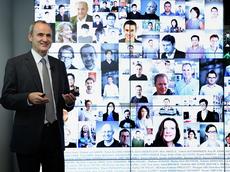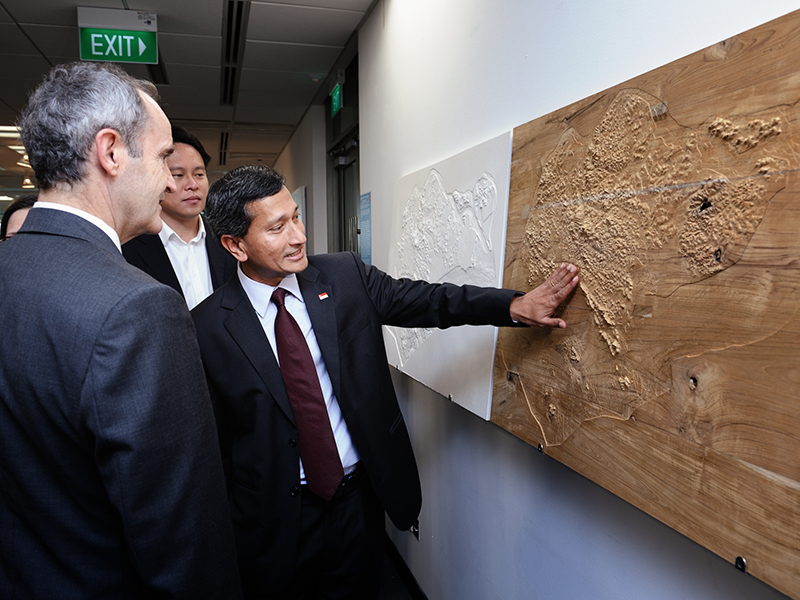Singapore Centre takes stock of its achievements
The Singapore-ETH Centre puts on a Midterm Exhibition to showcase the work and the development of its Future Cities Laboratory research programme. The aim of this programme was to find sustainable solutions for the development of future cities, districts and regions. Synergies between Singapore and Switzerland made success possible.

Cities accommodate more people today than at any point in history and are more interconnected than ever before. Many of the world’s contemporary social, political and economic dilemmas are also found in cities. As such, cities are likely to be the places where the challenges of urbanisation and environmental sustainability can be most productively addressed.
In this light, the Future Cities Laboratory (FCL) team of approximately 140 researchers from over 30 countries study cities and urbanisation in the context of global environmental sustainability. In doing so, they help to shape sustainable future cities. Research in FCL is conducted in multiple scales, from building materials and systems, to urban neighbourhoods, quarters and precincts, hinterlands and territories, to extensive networks and their flows of people, material, energy and information.
"Research in FCL takes place in three ways – fundamental research by scholars, design research studios with students and applied research by scholars and designers,” explained Kees Christiaanse, Programme Leader of FCL. “Geographically we work on three scales: the building scale, the urban scale and the regional scale. The relevance of the rich palette of research in Singapore is also shown on three levels, namely projects directly related to Singapore, projects related to sustainable development in the East-Asian region, and projects that are relevant to the planet's sustainable future. This three times three combination produces an amazing spectrum of in-depth research."
Success through partnerships
Now, after three years of research, the SEC team put together a Midterm Exhibition that took place on 5 September 2013 to showcase the work and the development of FCL in its mission to tackle some of the most pressing challenges for the future of the built environment. The Midterm Exhibition is part of a review held in accordance with ETH Zurich and NRF’s review guidelines. A review panel, comprising well regarded international academics, industry practitioners and senior representatives from local agencies, evaluated where FCL stands internationally and how well visions and strategies are corroborated by past activities, future plans and resources.
“The story of how SEC came to be is one of collaboration and partnership between Singapore and Switzerland,” said Gerhard Schmitt, Director of SEC. “We are proud to be the first academic and research example of this partnership, and would like to take this opportunity to express our most sincere gratitude to all our partners for their invaluable support in the last three years. We aim to continue being an integral part of the research and development community in Singapore and around the world.”
About Future Cities Laboratory
The Future Cities Laboratory (FCL) is a
transdisciplinary research institute focused on urban sustainability in a
global frame and aims to build a foundation for a new curriculum of urban
science. FCL is run under the auspices of the Singapore-ETH Centre for Global
Environmental Sustainability (SEC), which was established by ETH Zurich and
Singapore’s National Research Foundation (NRF) in 2010.
Research work at FCL encompasses material
science, advanced fabrication, architecture, engineering, landscape ecology,
computer science, transportation planning, and urban and territorial design.
FCL aims to develop integrated solutions for the sustainable development of
future cities, districts and regions.








READER COMMENTS